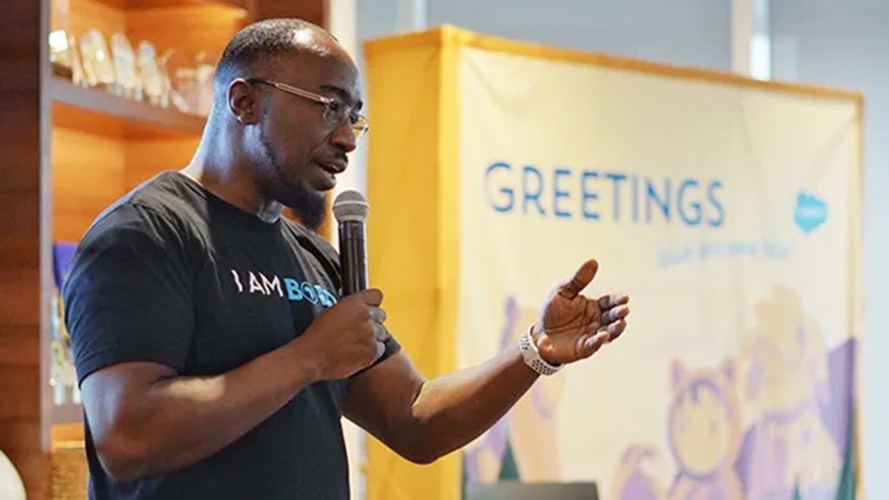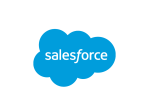This post was originally published on March 2, 2021 and updated on Feb 22, 2022.
President Wayne A. I. Frederick of Howard University once said that it’s a danger to the national interest to not invest in Historically Black Colleges and Universities (HBCUs).
We agree.
It’s more important than ever to invest in the Black community and equalize opportunities, especially in education. HBCUs are essential pillars in driving impact and social change. They are at the center of sparking innovation, creating opportunities for first generation students, and charting a new path forward to greater equity and access through education. Not only are their contributions in critical fields like science, technology, engineering, and mathematics (STEM) important, they also contribute to a more diverse workforce.
Ashley Christopher, Founder of HBCU Week Foundation, an annual celebration of America’s Historically Black Colleges and Universities (HBCUs) says, “Our efforts don’t end when students get on campus. Sustaining a college-to-corporate pipeline for HBCU graduates to find employment in corporate America is the long-term impact that we seek to make.”
What Are HBCUs and Why Were They Created?
HBCUs were initially established as institutions of higher education to educate Black students, though today HBCUs enroll diverse student bodies. In the 19th century, when many colleges and universities refused to admit Black applicants, HBCUs offered them a critical human right – access to a full education.
In total, the National Center for Education Statistics counts just over 100 historically Black colleges and universities. “HBCUs have been integral in providing leadership and role models for the African American community, the nation as a whole, and the globe,” says Dr. Mila Turner, Assistant Professor at Florida A&M University and a Howard University alum.
Salesforce.org is invested in bringing together the full power of technology, philanthropy, and community to support HBCUs. That includes working with HBCUs on digital transformation strategies, as well as ways to leverage the Salesforce ecosystem — including student career opportunities, pro-bono resources, and more. In an event with Salesforce and HBCUs, Monique Dozier, Vice President of Institutional Advancement at Morehouse College spoke about her partnership of purpose with Salesforce, and Ed Smith-Lewis, Executive Director of the Institute for Capacity Building at the United Negro College Fund (UNCF), highlighted the importance of tracking learner data at each stage of the educational journey.
Ed Smith-Lewis noted during the event, “At UNCF, we’re asking ourselves how do we move from transactional partnerships with third party organizations to transformational ones? To us, that means plugging them into more institutional activities and execution.”
At Salesforce we believe equality begins with education. Here’s how we’re working with HBCUs in four key ways to move from transaction to transformation:
1. Partner with Purpose

From creating virtual communities focused on health equity to ensuring a seamless recruitment and admissions process, it’s important to work collaboratively with HBCUs to drive learner and institution success at scale. For us, this work includes partnering with HBCUs on their digital transformation strategies as well as focused HBCU initiatives from our partners and support for Black-owned consulting businesses looking to grow as part of the Salesforce ecosystem.
Morehouse School of Medicine’s (MSM) National COVID-19 Resiliency Network, built in partnership with KPMG and Salesforce, is a great example of this work. MSM’s vision is focused on leading the creation and advancement of health equity. The U.S. Department of Health and Human Services entered a $40M cooperative agreement with MSM to link underserved populations to educational information, resources, and services related to COVID-19.
To do this, MSM collaborated with KPMG and Salesforce to build a community health portal using Experience Cloud and Service Cloud for members of the National COVID-19 Resiliency Network (NCRN).
2. Invest in Black futures
Sustaining a college-to-corporate pipeline for HBCU graduates to find employment in corporate America benefits companies and HBCUs alike. The more we can celebrate the success of these institutions by investing in students who’ve graduated from these schools, the better off our workplaces will be.
Our Futureforce recruiting team works directly with HBCUs to hire new grads and interns for careers at Salesforce. The group also facilitates class lectures at HBCUs on data science, sales management, and business, ensuring that students have the skills and competencies to be successful in a Salesforce career.
“Connecting with Salesforce in my classroom allowed me to gain knowledge around what it would be like to work in technology but more specifically at Salesforce,” says Colin Releford, a ‘20 alum of Morehouse College. “I was able to ask questions, hear personal experiences, and gather valuable information that ultimately led to me choosing Salesforce as the place to start my career out of college.”
3. Donate Time & Talent

Sustaining a college-to-corporate pipeline for HBCU graduates to find employment in corporate America benefits companies and HBCUs alike. The more we can celebrate the success of these institutions by investing in students who’ve graduated from these schools, the better off our workplaces will be.
Our Futureforce recruiting team works directly with HBCUs to hire new grads and interns for careers at Salesforce. The group also facilitates class lectures at HBCUs on data science, sales management, and business, ensuring that students have the skills and competencies to be successful in a Salesforce career.
“Connecting with Salesforce in my classroom allowed me to gain knowledge around what it would be like to work in technology but more specifically at Salesforce,” says Colin Releford, a ‘20 alumn of Morehouse College. “I was able to ask questions, hear personal experiences, and gather valuable information that ultimately led to me choosing Salesforce as the place to start my career out of college.”
4. Innovate Together

Addressing complex issues can’t be done in a vacuum. That’s why it’s critical to partner with HBCUs and other organizations focused on racial equity to collaborate, innovate, and drive change together through pro bono services and cross-sector initiatives.
For example, at Salesforce.org we’re bringing together leaders from HBCUs and other impact focused organizations to explore how to create more inclusive onboarding experiences for underrepresented learners via Impact Labs.
“Very rarely do underrepresented minorities have access to high-level technology in their homes,” says Dr. Glenda Evans, Assistant Professor and Chair of the Department of Business Administration at Hampton College and a current Impact Labs fellow. “I’m looking forward to working and collaborating with others in Impact Labs to find ways to help solve this challenge in higher education.”
Team Earth has landed
We believe that business is the greatest platform for change, and success should be for everyone on Earth and the planet itself. Because the new frontier? It’s right here.































